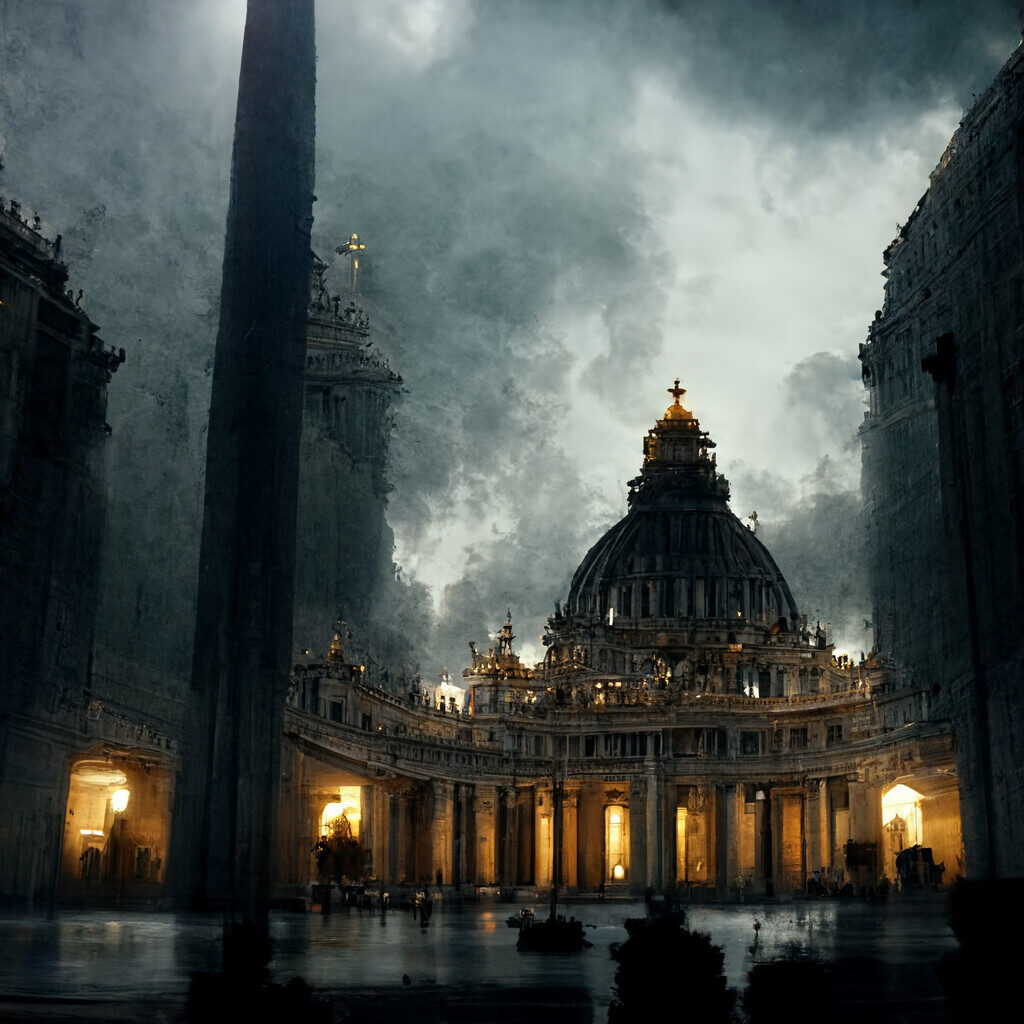at The Wanderer blog
“Pope Francis is near the end. It's a matter of days or weeks; a few months at the most". This is the rumor that has been circulating in the Roman curia for some time. The seriousness of his illness is a secret known to all and has already been commented on in various forums. As the Observatory reminds us, more than ever indispensable in these times, "popes enjoy good health up to three days after their death".
What could only be considered a voice coming out of the obscure anti-Bergoglio centers became more significant due to the sudden decompensation suffered yesterday, which forced the pope to be hospitalized in the Gemelli polyclinic. Furthermore, the program of celebrations for Holy Week without his presence is already ready: Cardinal Re will preside over Palm Sunday and the Easter vigil; Cardinal De Donatis will preside over the Chrism Mass and Cardinal Gambetti the celebration of Good Friday.
Faced with the news of the pope's health, what every good Catholic must do immediately is to pray that God will strengthen the Holy Father in the pain of his illness and, when the time comes, in his death.
We, who do not know whether we will be alive when the pope dies, can allow ourselves some further reflection. And what stands out most concerns the disconcerting incapacity of the Holy See's press office to handle situations of this type.
As can be easily verified in all the media, officially first it was said that the hospitalization was due to scheduled health checks, then that it was a matter of a heart problem and then of a respiratory problem, i.e. pneumonia (curiously, a few minutes before the Pope had spoken at the general audience without symptoms of fever, without coughing, without clearing his throat: a very strange pneumonia).
An entire catalog of nosology was applied to poor Francesco. And the worst thing is that, according to rumors in private circles, the problem is yet another: intestinal obstruction, which is predictable given the terminal state of his illness. But we shouldn't be surprised: when you put recommended and cronies in government posts, this is what you get. The worst thing is that the poor skills of the leaders of the Holy See's press office are matched by those of most of the leaders of the main government offices of the Church. Any resemblance to Peronist practices is, of course, purely coincidental.
When Pope Francis dies, because he will die like every child of Adam, there will be a conclave, and in this regard there is information, disclosed last week, which in our opinion has not been sufficiently taken into consideration by analysts, but now assumes particular importance.
On 23 March, the Commission of the Bishops' Conferences of the European Union (COMECE), which is the European Bishops' Conference, elected Monsignor Mariano Crociata, bishop of Latina, as the new president. The interesting thing is that this Italian bishop succeeds the progressive, Bergoglian and Jesuit Cardinal Hollerich, archbishop of Luxembourg. The appointment of the new president has not been well received in Santa Marta, and that is understandable. Crociata had been appointed secretary of the Italian Bishops' Conference by Benedict XVI, a preliminary step to the cardinalate. Bergoglio, however, removed him and left him with the sole task of taking care of his modest headquarters. Crociata is also a close friend of Cardinal Angelo Bagnasco, another of the cardinals detested by the Argentine pontiff. In short, Crociata is an early Ratzingerian. So, as you can see,
I think this is not a secondary fact. Even in very progressive circles, such as the European episcopate in general, Bergoglians are now being pushed out to place conservative bishops in leadership positions.
Perhaps this is – I believe it will be – the trend of the next conclave. Institutions have their own survival instinct.
Source: caminante-wanderer.blogspot.com
Original title: The elusive health of Pope Francis

No comments:
Post a Comment